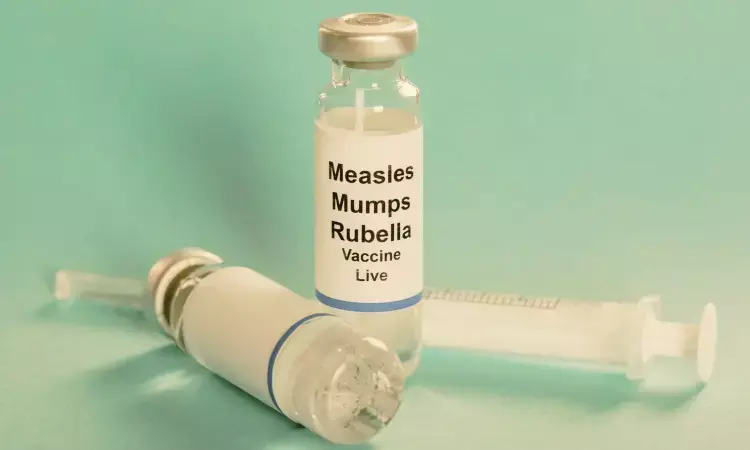- Home
- Medical news & Guidelines
- Anesthesiology
- Cardiology and CTVS
- Critical Care
- Dentistry
- Dermatology
- Diabetes and Endocrinology
- ENT
- Gastroenterology
- Medicine
- Nephrology
- Neurology
- Obstretics-Gynaecology
- Oncology
- Ophthalmology
- Orthopaedics
- Pediatrics-Neonatology
- Psychiatry
- Pulmonology
- Radiology
- Surgery
- Urology
- Laboratory Medicine
- Diet
- Nursing
- Paramedical
- Physiotherapy
- Health news
- Fact Check
- Bone Health Fact Check
- Brain Health Fact Check
- Cancer Related Fact Check
- Child Care Fact Check
- Dental and oral health fact check
- Diabetes and metabolic health fact check
- Diet and Nutrition Fact Check
- Eye and ENT Care Fact Check
- Fitness fact check
- Gut health fact check
- Heart health fact check
- Kidney health fact check
- Medical education fact check
- Men's health fact check
- Respiratory fact check
- Skin and hair care fact check
- Vaccine and Immunization fact check
- Women's health fact check
- AYUSH
- State News
- Andaman and Nicobar Islands
- Andhra Pradesh
- Arunachal Pradesh
- Assam
- Bihar
- Chandigarh
- Chattisgarh
- Dadra and Nagar Haveli
- Daman and Diu
- Delhi
- Goa
- Gujarat
- Haryana
- Himachal Pradesh
- Jammu & Kashmir
- Jharkhand
- Karnataka
- Kerala
- Ladakh
- Lakshadweep
- Madhya Pradesh
- Maharashtra
- Manipur
- Meghalaya
- Mizoram
- Nagaland
- Odisha
- Puducherry
- Punjab
- Rajasthan
- Sikkim
- Tamil Nadu
- Telangana
- Tripura
- Uttar Pradesh
- Uttrakhand
- West Bengal
- Medical Education
- Industry
Intralesional MMR Vaccine Outperforms Vitamin D in Wart Treatment, Study Finds

Egypt: A recent randomized clinical trial demonstrated that the intralesional measles, mumps, and rubella (MMR) vaccine is more effective than vitamin D3 in treating multiple warts, offering a promising alternative to traditional destructive therapies.
In the study, published in the Indian Journal of Dermatology, Venereology and Leprology, 80.4% of patients in the MMR group (0.3 mL) achieved a complete response, compared to 66.1% in the vitamin D group (0.3 mL). Although the MMR group reported higher rates of mild pain and injection site itching, the recurrence rates after six months were similar between the two groups (3.6% for MMR vs. 5.4% for vitamin D).
Warts, benign skin lesions triggered by human papillomavirus (HPV) infection, often pose cosmetic concerns and discomfort. Traditional treatment approaches, such as cryotherapy, electrocautery, and chemical cautery, although widely used, are associated with various side effects and recurrence risks. Manar Sallam, Department of Dermatology, Andrology and Sexually Transmitted Diseases, Faculty of Medicine, Mansoura University, Mansoura, Egypt, and colleagues aimed to evaluate the effectiveness, safety, and tolerability of using the intralesional measles, mumps, and rubella (MMR) vaccine in comparison to vitamin D for treating warts.
For this purpose, the researchers enrolled 112 participants with multiple warts, dividing them into two groups. Group I (56 participants) received 0.3 mL of intralesional MMR vaccine, while Group II (56 participants) received 0.3 mL of intralesional vitamin D3. Injections were given every two weeks into the most noticeable wart, with up to five sessions. The participants were followed up for six months after their final treatment.
Key findings were as follows:
- The MMR group showed a significantly higher complete response rate (80.4%) than the vitamin D group (66.1%).
- Both groups received an average of four treatment sessions, with no significant difference.
- The MMR group experienced significantly higher rates of mild pain (96.4%) and injection site itching (12.5%) than the vitamin D group.
- After six months of follow-up, the recurrence rates were similar in both groups, with 3 cases (5.4%) in the vitamin D group and 2 cases (3.6%) in the MMR group.
The researchers concluded that intralesional MMR demonstrated greater efficacy than vitamin D in treating warts, though with a higher incidence of tolerable side effects. Both treatments were safe, effective, and cost-efficient for wart therapy, offering low recurrence rates. As such, immunotherapy, including intralesional MMR and vitamin D, may be a suitable option for managing multiple, disseminated, and recalcitrant warts.
"The study, however, acknowledges certain limitations, including the lack of assessment of viral types and serum cytokine levels before and after treatment. Further studies are needed to explore the effect of these injections on cytokine serum levels," the researchers wrote.
Reference:
Sallam M, Awad A, Hamdy S, State A. Intralesional measles, mumps, and rubella vaccine versus vitamin D for treatment of warts: A randomised clinical trial. Indian J Dermatol Venereol Leprol. doi: 10.25259/IJDVL_1669_2024
Dr Kamal Kant Kohli-MBBS, DTCD- a chest specialist with more than 30 years of practice and a flair for writing clinical articles, Dr Kamal Kant Kohli joined Medical Dialogues as a Chief Editor of Medical News. Besides writing articles, as an editor, he proofreads and verifies all the medical content published on Medical Dialogues including those coming from journals, studies,medical conferences,guidelines etc. Email: drkohli@medicaldialogues.in. Contact no. 011-43720751


